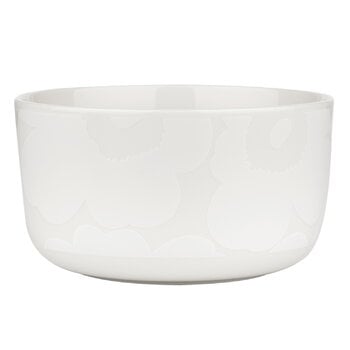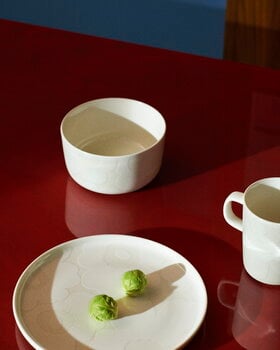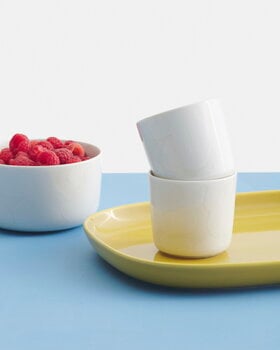Marimekko’s Unikko bowl features Maija Isola’s iconic floral pattern in natural white hues. The size is ideal for soup, porridge or a larger serving of breakfast cereal. The ceramic bowl is part of the Oiva tableware range, designed by Sami Ruotsalainen, and is easily combinable with monochrome dishware as well as other Marimekko patterns. Why not collect a whole range of Unikkos in different colours?
The instantly recognizable Unikko pattern came about in 1964 after Armi Ratia, the founder of Marimekko, had announced in public that no floral fabrics would be made at Marimekko. However, textile designer Maija Isola was not one for rules or restrictions – in protest, she designed a complete collection of bold floral patterns. One of them was named Unikko, Finnish for ”poppy”, and it quickly became a favourite of Ratia, as well. Today, Unikko is one of Marimekko’s best-known patterns, and it adorns a variety of objects from fabrics and bed linen to Sami Ruotsalainen’s clean-lined Oiva tableware collection.








